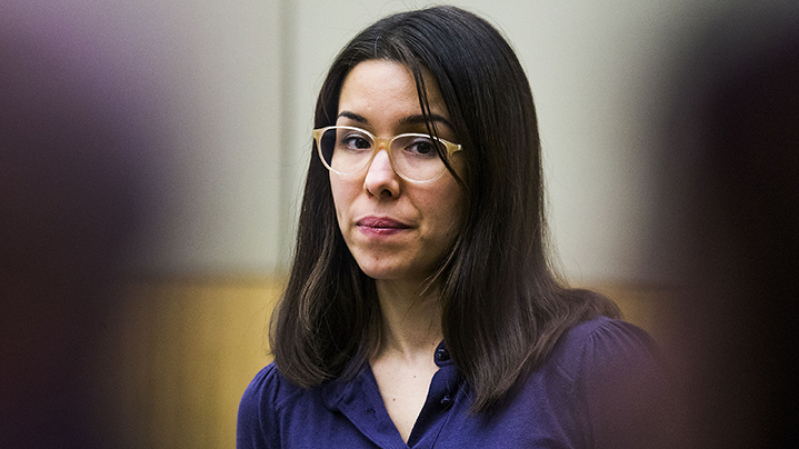
The penalty phase of the Jodi Arias trail came to an anticlimactic ending after one juror voted to keep the convicted killer behind bars for the rest of her life instead of the death penalty. Now she is speaking out on why she made that decision.
In an interview conducted by Brahm Resnik of KPNX-TV in Phoenix, Juror 17, who remains unidentified due to threats lobbied against her on the Internet, tried to shoot down allegations that she was the "stealth juror" who fooled everyone in her efforts to save the life of Arias.
"I didn't ask for this," Juror 17 said. "I just showed up for jury duty."
According to Resnik, the other jurors who voted for the death penalty did not have their identities revealed either. However, Resnik described Juror 17 as a 33-year-old mother of three children.
"In the course of her hour-long interview with KPNX-TV, Phoenix, Juror 17 described the attacks on her and her family; 'brutal' battles inside the jury room; and, finally, why she believes Arias should not be put to death for the savage murder of boyfriend Travis Alexander," Resnik wrote.
Thanks to the decision of Juror 17, Arias now faces a sentence of life in prison. Resnik reported that the other 11 jurors who voted for the death penalty condemned Juror 17 and attempted to kick her off the jury.
"It wasn't easy, I didn't ask for it, I didn't want it," Juror 17 said about the Arias case. "All I did was answer the questions truthfully. I didn't want to be involved. I didn't want this pressure."
Juror 17 described her previous knowledge about the Arias case to Resnik before being summoned for jury duty.
"I live in Arizona, so I had heard about the case and I had seen just when they would come up on the news," she said. "I would hear people talk about it, and it wasn't something I really wanted to get sucked in to - not with the problems I had going on at the time."
According to Resnik, her decision led to a strong reaction by social media users.
"Twitter and Facebook have been filled with threats against the woman and her family members," Resnik wrote. "Her name, address, phone number and a photo of her home were posted online shortly after the mistrial was declared."
Resnik reported that social media placed out a conspiracy theory that Juror 17's decision was based on revenge against prosecutor Juan Martinez, who was also responsible for putting her ex-husband behind bars. That connection only came up when the second mistrial was declared.
"When I walked into the courtroom and I saw him for the initial jury selection, the only memory that I have of recognizing him is from TV - nothing beyond that, nothing past that," she said of Martinez.
Juror 17 added that it was "preposterous" for her to "hold a grudge or to blame somebody for doing their job." However, she did recall another Martinez sighting in her interview with Resnik.
"I saw him on a true-crime show for another case and I want to say it was a case where a wife stabbed her husband in his sleep," Juror 17 said.
According to Resnik, Juror 17 notified the court bailiff once the "conspiracy theory" surrounding Martinez and her ex-husband broke out on the Internet.
"I gave all my information up front," Juror 17 said in her interaction with the bailiff. "I didn't know the connection until now. Please let me know what I can do."
Juror 17 told Resnik that she felt "ambushed" by her information supposedly leaking to the public along with the connection to Martinez.
"It was scary and upsetting for me to hear that," she said. "I gave you everything. Why is this coming up now?"
According to Resnik, Juror 17 disclosed to lawyers during their interviews with potential jurors that her current husband served time in prison before they met. It was also during that period that she disclosed an abusive relationship with her ex-husband, who was convicted of robbery.






